Work & Skills of the 21st Century
In this article, I will explore the prediction that the rapidly advancing digital world, Big Data, AI, Internet of Things (IoT) is ushering in the Augmented Age of machine-to-machine and machine-to-human interactions which is expected to radically changing how we work, how we live and how we learn.
A challenge for students choosing career paths, displaced workers, fundamental job changes, transformations of education systems and the challenge for parents to guide their children is a real concern that needs our attention. Lin Kobayshi founder of the International School of Asia said “Educators have a big challenge to teach or train people for jobs that don’t exist yet”. She talks about 3 key skills at the core of their education system; first having an ability to embrace diversity, second to be able to ask what is most important to ourselves, and third the ability to take action in face of discomfort, or take risks. Others have identified Critical Thinking, Creativity, Innovation, Collaboration, Information gathering/organizing/processing and communication skills. All of which are uniquely human and difficult for computers to replace.
I will draw from some of the top minds in this space and show the data from leading international organizations studying the effects of these changes and how people should prepare and rethink their learning strategies.
The Fourth Industrial Revolution is in us and we had better pay attention, engage and prepare our children for embracing a brave new digitally connected world. As defined by Wikipedia the [Fourth Industrial Revolution – Wikipedia] is the fourth major industrial era since the initial Industrial Revolution of the 18th century. This Revolution can be described as a range of new technologies that are fusing the physical, digital and biological worlds, impacting all disciplines, economies and industries.
- Central to this revolution is:
- Artificial Intelligence (AI)
- Big Data
- Internet of Things (IoT)
- Cloud
Autonomous Vehicles, IBM’s Watson, AlphaGo, just to name a few:
- The Genome (all biology)
- The Connectome (our brain)
- The Microbiome (our body)
- Mind, well that’s [The Hard Problem of Consciousness – Wikipedia]
Artificial Intelligence often referred to as [The Last Invention – Wikipedia] is powering our world in more ways than you might image, in fact you are using it every day as every Google search is returned to you using a form of AI, in the US your taxes will likely be done with the help of Watson as H&R Block has rolled out their partnership with IBM, and medicine with Watson working with the entire medical records of the us. The age of human interacting with machines is here. Our family is interacting with AI through Google Home in our house and Amazon’s Echo at my office. It’s is cool, maybe not that useful, certainly can live without it but my point and encouragement is to be engaged with the technologies so we are not passed by or generate unrealistic fears and misunderstandings.
In the late 20th century the Internet led us into the Information Age empowering people with access to the knowledge of the world. Hundreds of millions of computers connected through vast networks created the first wave of the 4th Industrial Revolution.
Around 2009 the revolution picked up speed in the second wave with Mobile as the new Smart Phone has more power than the large room of computers that sent man to the moon. Social networks like Facebook and WeChat are connecting hundreds of millions of people with expectations there will be more mobile phones than people within the next decade.
Just in the last few years the world’s information connected to the world’s population is leading to the connectivity of all those people and mobile phones to cars, appliances, our homes and our bodies. Machine to Machine communications, the implementation of AI, and the Big Data produced is expected to transform everything we do and the way we do it in the very near future.
This 3rd Wave is going to displace millions of jobs, especially if they are data processing, and or jobs that is easy to automate. Like previous revolutions it will create new jobs and those new jobs will require new skills. It will require new ways of thinking and as you will see in this article a shift to the development of the human skills that computers are not good at doing.
What led me to write about Future Skills?
Answer; China and my daughter. I have been in China 14 years and watched major transformations driven by technology. It is expected that China will overtake the US within the next decade and that will be driven by the 4th Industrial Revolution. The second reason, my daughter, because I am thinking about how to best equip her for the future and as a parent learn what I need to know to best guide her. Having studied this space for the couple years I have also become greatly concerned about how parents will lead their children and how our children will learn and train for the future. How they will use the smart technologies to be a useful tool and not something to spend more time on sharing pictures of what we had for dinner last night. The use of mobile in China is huge and for the most part being misused, as the service I am getting from people is getting worse and people wasting so much time chatting, sharing pictures of cats is not lending to the development of human skills that is fore casted to get a good job in the future.
Over the last decade I have seen significant transformations in China. Although the manufacturing sector is still behind in many factories, automation is on the fore front of their thinking and as labor costs rise so does the automation. I have watched the standard of living grow tremendously in the last decade and a huge middle class with disposable income shopping like crazy through hundreds of ecommerce platforms like Taobao, Alibaba, buying products from everywhere in the world.
The “Chinese Dream” as communicated by the current Chair Xi Jinping is communicated openly as they connect Europe with the One Road One Belt initiative to name one of the development points. [Davos-2017-Opening-Plenary-XiJinping-President-of-the-Peoples-Republic-of-China – 60 Min] and [XiJinping-General-Secretary-of-the-CPCCC-speech-at-celebratory-conference – 84 Min] are recommended video’s if you’re interested in China leaders comments.
I have also watched Mobile transform this society. Social networking platforms like WeChat, in China called Weixin started as a messaging App just a few years ago now has ½ billion subscribers, 300 million active users now offering all kinds of services from instant picture and video share, walky-talky functions, and most recently financial transactions. In once a predominantly cash society that is no longer the case, in fact even the little tiny store who still keeps cash in a drawer you can purchase anything just scanning the QR code that is taped to the counter and transfer direct from your bank account or funds in your app, it has literally bypassed the cash register for many little shops.
For hundreds of millions of users, this is an awesome solution, from transferring money at a local store to connecting with the parents in the village with a couple clicks. It is all free, easy to use and literally transforming society as it becomes the basic form of communication. News, political and societal issues are expressed widely in minutes causing more transparency in government and the worlds largest social democracy. A large shift from computers and email to Weixin for business communication, of course it makes sense as it is quick and easy and they are already checking their phone 50 times a day but unfortunately quick and easy communication also leads to a reduction in quality with no depth and or context. Whether you like it or not the world is going global and mobile so look to China for trends and technology advancements.
What led me into the IoT/AI space:
A little context: I have been interested in the Internet since it started getting popular some 25 years ago. I sensed the web was going to be big so started learning HTML and creating websites. I wrote a couple of E-Books with the dream that I could open my computer and watch auto-responding emails coming in by the thousands. I was converting 1%, a couple months 3% of the hits so I understood the technology and the process but only had about 1000 unique visitors per month which only translated into a few book sales. Recognizing my lack of skills, not the technical as I could build a decent website and convert hits to customers at a reasonable percentage but a new way of thinking about this technology and the personal skills like organization, interpersonal, leadership, communicating my ideas, team building really hindered my potential. I also lacked a good understanding of people, why they do what they do and more important why I do what I do was a huge obstacle.
This led to study and engaged in personal and professional development and having read many business books, much of which was talking about the boom in Asia I quickly recognized learning a second language and putting myself in the middle of the growth would be valuable so I packed up my bags and headed to China. I move to China in 2003 as an English teacher and within the first year started a small company that I have operated for more than 12 years now. I have been primarily involved in Industrial products and manufacturing which was the boom 15 years ago as labor-intensive manufacturing shifted to China while the developed world became more and more automated, arguably now fully automated.
After a decade of manufacturing I began to move into more of a consulting role with small company setup in China and continuing in product development. I found a home appliance product had good potential for the standard business model but also real potential as an IoT device. This led me to study the space of IoT and quickly recognized the radical change this potentially had on my and my daughter’s life I spent the next year studying this space, the technologies and the companies on fore front.
I learned that companies like IBM offering the super computer Watson as an AI service enabling new business models to emerge like GoMoment who uses Watson through Ivy to interact with hotel guests providing information, booking trips, restaurants and guiding then by test messaging. H&R Block using Watson to do our taxes and the major work in Health Care. Google Cloud Next and their revolutionary products and platforms, Amazon Web Services (AWS), Vicarious AI, leading to totally new and disruptive business models like the commonly quoted AirB&B, Huber, Netflix, alike.
The automation of cars with self-parking, adaptive cruise control, automatic lane change, and companies like Tesla Inc which enabled full self-driving capability on the Model S on the highways of the US. Google Self-driving cars that have already put 1.5 million miles on the road doing better than humans could have done is making it clear my daughter will probably not need a car or driver’s license. Hundreds of Humanoid Robots like Pepper now actively serving in restaurants and tourist locations throughout Japan.
Seeing the transformation and currently involved in the IoT space I recognized the importance to engage in this 4th Industrial Revolution, not to dismiss it as a fad, and not to be afraid of it but engage to gain a better understanding and of course be better able to guide my daughter as she is sure to grow up in a brave new world of intelligent machines.
As part of the new skills strategy which I will share more on later in this article my family immediately purchased and Amazon Echo for my office and a Google Home unit for my house. My 4 year old daughter has her tablet, her Microsoft account and now interacting with these AI devices. For her it is mostly a high tech toy but it is a new phase of machine to machine interaction. These devices are awesome, replying with facts of the world, almost anything in an encyclopedia, great at helping with research or homework, an awesome calculator, reads off Wikipedia pages and even tells jokes when we want. Ask for weather forecasts in any city, news around the world all through high quality speakers and microphone arrays.
It feels weird the first times, talking to the device in plain regular language and it answers, and of course anyone that comes in can talk to it. At one point I was actually having a conversation with the device and it really started to feel weird, especially calling it a women’s name and pondering how this is going to fit into my family. Alexa (it) can be quite funny like its response to; Are you single? It replies “I’m totally cool being single, besides it is hard to find someone kind, funny, artificially intelligent and doesn’t mind the cloud commute.” Or asking the weight of the earth and replies with the weight in kilograms. (It’s a very long number.) These AI devices really made me think of the world my daughter would grow up in and getting use to this machine-to-machine interaction is real and important. Some further thought was to imagine a person with a robotic prosthetic, already part machine and how he/she feels about interacting with Alexa. This indicates a real and profound change society is expected to go through over the next 5, 10 or 20 years.
State of the 4th Industrial Revolution:
The theme of World Economic Forum in 2016 was “Mastering the 4th Industrial Revolution” and there are many good video’s of keynotes, plenary sessions and panel talks that can enlighten you on the current state of affairs in this space. In 2017 the forum’s theme was “Responsive and Responsible Leadership” which continued with talks in this space and the leaders responses to it. I provide a list of related video’s at the end of this article for your reference.
Also key in this space is the research and data from the Organisation for Economic Co-operation and Development (OECD). It is their mission is to promote policies that will improve the economic and social well-being of people around the world. [http://www.oecd.org] The OECD has done some incredible research in the field of future skills and is currently helping governments and educational institutions better understand the changes coming up and some insights on how to reform.
The ideas expressed are totally relevant to you and I if we are planning a career, a new business strategy or figuring out how to guide our children into the future. Andreas Schleicher the Director of Education & Skills in the OECD commented [GESF-2015-Plenary-The-State-of-Education-Today.mp4 – 55 min]“The world economy no longer pays you for what you know, because Google knows everything, but for what we can do with what we know.” In other words to be able to gather knowledge and use that knowledge to Think Critically, be Creative and Solve Real World Problems as are skills discussed over and over in this space.
Stefano Scarpetta director of Employment, Labor & Social Affairs at the OECD reveals data from their studies indicating more and more jobs will be turned over to robots (automated) as the new jobs will require new skills. [OECD-Forum-2016-The-Digital-Economy-the-Future-of-Work.mp4 – 90 min] In this video he discussed estimates that 9% of jobs will be completely replaced by machines and another 30% will undergo radical changes. With a key comment at the bottom of this slide that it not about working for robots but working with robots.
It seems to be clear that governments, business leaders and big tech companies are planning and implementing strategies for dealing with this revolution. They are defining the new worker as “New Collar” replacing white or blue collar workers. Not sure if she coined the term “new collar” but I first heard it from IBM’s Ginni Rometty in her comments in Davos this year. [Davos-2017-Nadella-Rometty-MITs-Ito-Artificial-Intelligence.mp4 – 56 min] This esteemed panel of leaders discuss the ideas and insights on this revolution and bust some myths starting with there will be new jobs created by this technology as proven by history when new technologies emerged but with those new jobs came new skills.
Ginni describes the idea of “new collar” workers that won’t necessarily need high degrees to do the new work but will need new skills, second that the companies that deploy this technology to do training and third that the technology itself will re-train as they currently see with companies taking on the technology. Another panelist (Ito) talks about most educational systems not being dynamically changing with the advancements of the technology, as he said institutions create a course and teach it for a couple decades. Mr. Ito also then added that institutions teach skills and knowledge when they need to be teaching learning, how to learn, how to be creative and figure out what a computer won’t be able to do and teach that.
The New Skills of the New Collar Worker:
At the beginning of this article I quoted educator Lin Kobayshi and the core skills their schools embrace and promote with their students. She emphasizes the ability to embrace diversity, being able to ask one’s self what is most important and to take action in face of discomfort. These concepts are actually quite profound and at the heart of the more tangible skills, knowledge and personal characteristics one must consider in the OECD’s research. Andreas Schleicher in his presentation [OECD-Forum-2016-Skills-for-the-Future.mp4 – 86 min] identified 7 key skills, 5 key areas to gain knowledge and several personal characteristics one should acquire when planning career paths or as parents / educators giving advice or guidance to our kids.
The above screenshots are a nice tangible collection of skills, knowledge and qualities that keep coming up in the many video’s listed in this article and the hundreds I have viewed over the last year. As far as I can see this collection will change how we look at the traditional STEM (Science-Technology-Economics-Math) courses currently being taught and not only what is being taught but how it is taught with the skill of learning how to learn at the foundation.
I won’t say much about the actual courses one should consider but maybe the new STEM might look something like; several courses in the Life Sciences that leaves you with a good understanding how life evolved on this planet, human Biology and our Brain, knowledge of the Standard Model of Particles with the 4 forces and a healthy understanding of the Periodic Table, Technology with an emphasis on Digital, Data and Code, the Arts adding Design Thinking and Creativity, the Humanities to understand the uniqueness of people and why we do what we do, History to get context on where we come from and keep it all grounded in Empirical Reality. Of course economics is important and suggest a course or two in this domain, maybe adding business planning, marketing and customer service. It is suggested that high degrees are not necessary for the new skills but of course advantageous. One of the biggest benefits of getting a PhD is not for the information because that is sure to change but for the knowledge of how to learn, how to study a subject thoroughly, being a good detective piecing together a nice puzzle in and articulate presentation that we can all benefit from.
I can totally relate to this skill set as for me it is not that new. I left high school with a trade as a diesel mechanic just before the electronic fuel systems entered some 30 years ago. Within a decade the carburetor industry was gone and no engine was produced in the heavy or automotive industries without electronic fuel injection. This dramatically improved fuel efficiency of vehicles increasing our oils reserves and reduced pollution with cleaner emissions. More profound is how it changed my industry and the skill sets of mechanics from being mechanics trouble shooting and repairing parts to technicians plugging in a computer and just removing & replacing (R&R) the part it told us to.
This fundamentally changed mechanics forever and I had to adapt and learn new skills to remain in the industry or get out of it. I chose to get out and started learning the skills of an entrepreneur. Engaged in personal development, leadership, goals setting and the training of my mind for the information age. I joined Toast Masters to learn to be a better communicator, and started taking good notes paying attention to everything finally identifying and overcoming my insecurities and my narrow mindset. What I did build was a growth mindset, a thirst for knowledge and a move to China embracing a world of different perspectives and diversity. Without knowing it at the time this set me up to easily embrace change, be open and creative for new ways of doing things and now extremely excited about the 4th Industrial revolution.
Learning how to Learn:
Quote: “If a child cannot learn in the way we teach, maybe we should teach in the way the child learns.”
We must take full responsibility for our learning, not necessarily for our education but at the very least for our learning. We cannot blame our education systems as it should be clear by now they are all going through reform. We cannot blame our teachers or our parents as you can lead a horse to water you but can’t make it drink. It is up to you to take charge, apply leadership to your learning to reinvent and reshape your brain are on top of the skills of the future.
Learn how to “pay attention” to everything going on around you, ask good questions, and be a good observer. Train your mind to think like a scientist being aware of our biases, ask targeted questions, note results, observe everything we can, look for patterns, and pay attention to how people act and react to various situations and especially to your words. Take good notes, glean insights and associate them with things you have experienced to anchor it in your brain.
We need a good understanding of how the brain works, how our brain tricks us, fills in the blanks, reconstructs, finds patterns returning us images that do not necessarily reflect reality. Watch David Eagleman’s 6 Part series on the brain so you understand what he means when he says “You don’t see the world as it is, you see the world as you are” in the final video of the series [PBS The Brain with David Eagleman 6of6 Who Will We Be – YouTube Video]. Check out the brilliant work of Professor Ramachandran revealing insights into our brain and the phantom limb phenomenon in a recent presentation at University of Glasgow [Ramachandran-Illusions, delusions and the brain – YouTube Video]. Found another brilliant talk and technique that I regularly apply by Dr. Alan Watkins on [How to hack your biology and be in the zone every single day – TEDx] with insights into our thinking patterns and how to keep in the zone.
To learn effectively you also need to have a solid understanding of how the many biases you have dramatically effecting your ability to gain new information and insights without simply confirming your biases. It is no wonder why this is the latest rage of training for corporate executives as this is clearly a weakness and defect in the way we process information. In a 2016 talk titled Unconscious Bias: Sexism without the Sexists in Sydney [Unconscious Bias Jennifer Whelan, All About Women 2016 – YouTube Video] Jennifer Whelan explains how this happens at an unconscious level. Study the many biases and be aware of how this limits your ability to gain new insights.
Understand how our memory works so that we can retain information and be able to draw on it when needed. How the brain retains and transfers information from the short term to the long-term memory, and the retrieval of information. Some science suggests eating ground flax seeds, the Omega 3’s that supposedly help make synapse connections. Or maybe the memory and cognitive enhancing drug Dr. Daphna Shohamy suggests in these insightful videos on memory.
[How We Remember, Why We Forget, and Why It Matters, Part 1 – 2012 – YouTube Video]
[How We Remember, Why We Forget, and Why It Matters, Part 2 – 2012 – YouTube Video]
The above points are good knowledge and techniques to apply but from my experience probably most important issue to deal with is our personal insecurities and fears. If we are unfortunate to be carrying around a bunch of baggage from the past then it is likely to hinder or prevent us from learning and growth in the future. In relatively healthy humans this is probably the single biggest factor inhibiting learning. People that see themselves as small, weak or inadequate tend to resist, justify and defend their opinions, ideas and concepts at the cost of growth.
We listen but cannot hear as our brain finds patterns in past experiences, and rejects or blocks gaining new insights and perspectives. It doesn’t matter what facts are presented, insecure mindsets simply prevent us from inputting new information if it is counter to currently held beliefs. Our insecurities tend to keep us on the defense and convince us that the way we see things, or what we believe is true and accurate and rejects facts presented if it conflicts with those beliefs. Our insecurities make us fearful of change, uncertain of the future limiting our ability to gain new knowledge and take action or make decisions. This fear can also prevent us from asking questions and seeking new ways to think seriously inhibiting learning, growth and creativity.
Our insecurities impacts our intellectual honesty when facing facts that contradict our hypothesis, it makes it easy for us to twist the meaning of words or facts misleading our listeners to achieve a different outcome. This was a fancy way of saying we play mental games with ourselves and others and does not lend to healthy human interactions and problem solving.
Gathering & Organizing Information:
To re-quote Andreas Schleicher “The world economy no longer pays you for what you know, because Google knows everything, but for what we can do with what we know.” Everyone has access to the worlds information so how you gather and discern will have a big outcome on what you will believe in turn how you will act. If you want to do good or great things then you had better have good information, especially when “knowledge” is no longer an advantage. Psychologically you can also choose whatever state you want to be in. Do you want to be in the zone and fully focused when doing a high level task or totally carefree allowing creativity and diversity to flow. You can generate any state, have access to the worlds information then Andreas is accurate to express what you do with knowledge is critical. If you have a good system for gathering information, good at discerning that information then to have well thought through goals provides a guide for application.
Being a good evaluator of information and having goals is significant as Eli Pariser the Internet Activist who coined the phrase [The Filter Bubble – Wikipedia] points out predictive services, cookies, and preferences keep returning search results, feeding you news or other social media based on what “it” some algorithm determines what you want based on previous activities limiting you from gaining broader insights and perspectives. It is like the perfect tool to feed your confirmation biases which will keep you in a narrow world. It is highly recommended to read his book or view this 24 min talk [How the Filter Bubble is shaping Lives.mp4 – YouTube Video]. Another big take away from Eli is the new gate keepers have shifted from people in the past to machines and algorithms making it all the more important to have you own information management systems and clear goals.
One of my favorite philosophers is A. C. Grayling for his specific philosophy on learning and what an education is for. In this wonderful talk on the future education [AC Graying talking about the future of education – YouTube Video] Grayling points out the importance of being good “evaluators” of information. He points out the Internet is a wonderful thing but it is also full of nonsense, that is the largest repository of rubbish and to develop the skill of knowing how to check things, to verify the references, being able to bring together your education and experiences capable of making sense of things that is productive. He talks about the difference between school and university education demonstrating a higher education teaches you to being reflective about your knowledge, to understand how you got it, its defeasibility about claims to knowledge and being able to make mature use of it, shaping a way of reflecting and thinking. Grayling has some profound insights into ways of learning and what and education is for helping us better apply knowledge.
Critical Thinking:
Critical Thinking is becoming more and more popular as the need continues to become more and more apparent. “Critical Thinking” is a buzz word often used but mostly abused. Critical thinking is well defined by organizations like the National Council for Excellence in Critical Thinking – with a goal to “articulate, preserve, and foster intellectual standards in critical thinking research, scholarship, and instruction“. The website is full of excellent information [http://www.criticalthinking.org] and demonstrates the importance and value of this characteristic and skill which typically gets weakened as more and more people use it without regard to its importance and impact on our lives.
Critical Thinking involves the great human capacity to ponder deeply on specific subjects or issues removing our biases, wishes, wants or preferences. Being able to absorb facts and or knowledge then evaluate and sort through eliminating what doesn’t fit our observations, goals, wants or desires. Being courageous enough to challenge the “status quo” or “accepted belief” and push further for greater understanding and awareness is critical thinking.
Outstanding men and women throughout history have revolutionized our minds, beliefs and ways of thinking. All the way back to the deep mental practitioners of thought like Hindu’s and Buddhists to more well know figures like Sir Isaac Newton pondering deeply about the apple falling advancing our understanding of gravity. Darwin and his deep thinking about species and evolution revolutionizing our understanding of biology. Many of humankind’s greatest discoveries came from men or women that thought critically, that pondered deeply, asked the question “why” not settling for simple or inadequate answers that suited the status quo of the time. They bravely communicated their results inviting scrutiny, accountability finally succeeded in raising our level of understanding biology.
Following in the footsteps of great scientists or philosophers to start thinking critically about “who you are and how you came to be”. This is not some silly exercise or something easy to do but taken serious you will unlock or engage in a fundamental characteristic of being human and a real sense of personal development. I believe this gets at the very meaning of Socrates (470-399 BC) and his well-known quote “The unexamined life is not worth living!” To think critically about “who you are and how you came to be” will propel you on a scientific journey understanding biology, cell replication and evolution which leads to “how you came to be”. Exploring “who you are” will take you on a philosophical journey understanding the environment that shaped you, the people that influenced you making you who you are today.
The application of critical thinking is foundational to evaluating the vast amounts of information and once this skill is developed you will naturally be able to discern what your reading or hearing for its validity, accuracy and if it fits with your goals or company’s aspirations. It is practically valuable in helping prevent you from being sucked in to some marketing scheme driving you to be a “consumer” buying what they want you to buy, or buying in to some fad, or the vain words of some leader, some cult with a deluded way of thinking about this world.
Personal Growth:
In this age of Intelligence machines doing all our computation, repetitive, dangerous and tasks humans prefer not to do means a defining what it is to be human and reevaluating the characteristics that make us unique. It is looking like this machine age will facilitate bringing the real human out in humanity.
Personal Development or Growth has always been important in maturing us as individuals, developing our character, and raising our levels of awareness about ourselves and humanity as a whole. It is one of the characteristics that sets us apart from the other life forms on this planet.
What I have found most profound in applied personal growth is how it helps you being you. It helps us come to terms with who which enable us to embrace new ideas, new perspectives, and new ways of thinking. Accepting yourself and being comfortable in your skin, knowing your strengths and weaknesses continually seeking a deeper understanding and meaning from life and people.
It helps us deal with our baggage and enables us to work at the edge of our knowledge and outside our comfort zone. It help us deal with our insecurities and being offended which holds us back and often blocks our mind from learning, observing and gaining new insights and perspectives. It reduces our prejudices, stereotypes, and biases that effect our ability to learn.
Carol Dweck Professor of Psychology at Stanford University is known for her work on the psychological trait, the Growth Mind Set, a sense of ownership in learning, taking full responsibility and not blaming the teachers or the educational system. She talks about a “fixed mindset” compared to a “growth mindset” and in her studies people with a fixed mindset strive to do things perfectly, and focus on subjects that they can excel and look good at while growth mindset individuals focus on learning, and collaborate without worrying about how they looked. Her studies showed people with a fixed mindset had fears of errors trying to be perfect closes people off from growth. In this Intelligence Age the tech companies have a “fail fast” model and now encourage employees to fail, to prove out the concept so we can move on. IBM founder Watson once said they key to success was to double your rate of failure. [School of Life-Carol Dweck On Being Perfect – YouTube Video]
Creativity and Problem Solving:
The shear vast ways to create and be creative requires an article on its own so I won’t say too much here. Creating art is highly creative, creating music is highly creative, designing a new product or service is highly creative, and problem solving are all highly creative tasks lending to developing this unique human characteristic.
Of course your physical environment can play a significant role in your ability to think creatively which spawned a whole new science call [Environmental Psychology – Wikipedia]. Companies like Google that have created unique, colorful, open stimulating environments for employees to work which may have been a significant factor on the building this great company.
There are all kinds of mental exercises and things you can do to stimulate creativity in your brain. Mindfulness is very popular and known to enhance mental capacities and awareness. There are many drugs, foods, alcohols that alter your mental states that have proven to be effective and of course there is the wonderful human activity of brainstorming with a diverse group of people. Groups of people sitting around a white board throwing out ideas and brainstorming has solved more problems and started more companies than you could imagine.
Collaboration:
In 1624 John Dunne wrote “No man is an island” with the meaning that all people are connected to and dependent on other people. The Internet connecting the computers, the mobiles connecting the people, IoT connecting everything else it is clear that we humans will need skills for connecting us with each other.
As work becomes more people centered it will be important to be able to work across multiple disciplines, engineers with lay people, and leaders guiding teams working across cultures and across continents. A great opportunity for us to create a new environment for humans to interact more deeply with each other accepting our differences focusing on what we have in common to solve our problems and make the world a better place.
Conclusion: Summary
I see this revolution as very positive. As with other revolutions there were fears and concerns about what displaced people do, what the new work will be and if people will use it for good not evil. If our experience with the past revolutions are examples then we are in pretty good shape.
I will end with a simple summary of what we are applying in our family:
- As a family engage with technology learning how to use it as a tool that serves us. [Smart-Technology-is-Making-us-Dumb-IQ2-Debate – YouTube] and [TEDxTeen-Why-i-Dont-Use-A-Smart-Phone-Ann-Makosinski.mp4 – 12 min]
- Continue developing our skills on how to learn effectively and efficiently.
- Being good evaluators of information, carefully gathering, methodically organizing and critically discerning.
- Be clear on what is important to us and set goals.
- Encourage a growth mindset.
- Connect with people following advise that helped me handle China. “Seek first to understand before being understood.”
Resource Appendix:
World Economic Forum Reports, Video’s, White Papers:
WEF Reports & Papers
[http://reports.weforum.org/future-of-jobs-2016]
[https://www.weforum.org/whitepapers]
[WEF_Future_of_Jobs.pdf – 10 MB]
[WEF_FOJ_Executive_Summary_Jobs.pdf – 1.7 MB]
WEF Videos:
[Davos-2016-AI-IoT-Digital-Economy-Energy.mp4 – 63 min]
[Davos-2016-A-New-Climate-for-Doing-Business.mp4 – 60 min]
[Davos-2016-Eurasia-and-the-Modern-Silk-Road.mp4 – 60 min]
[Davos-2016-Issue-Briefing-The-Inequality-Challenge.mp4 – 30 min]
[Davos-2016-Life-in-2030-Humankind-and-the-Machine.mp4 – 90 min]
[Davos-2016-Press-Conference-Educating-the-Masters-of-the-Fourth-Industrial-Revolution.mp4 – 25 min]
[Davos-2016-Press-Conference-The-Digital-Transformation-of-Industries.mp4 – 31 min]
[Davos-2016-Special-Session-with-Li-Yuanchao.mp4 – 35 min]
[Davos-2016-The-Future-of-Growth-Technology-Driven-Human-Centered.mp4 – 63 min]
[Davos-2016-The-Internet-of-Things-is-Here.mp4 – 56 min]
[Davos-2016-The-State-of-Artificial-Intelligence.mp4 – 55 min]
[Davos-2016-The-Transformation-of-Tomorrow.mp4 – 60 min]
[Davos-2016-Where-Is-the-Chinese-Economy-Heading.mp4 – 71 min]
[Davos-2017-A-Basic-Income-for-All-Dream-or-Delusion.mp4 – 52 min]
[Davos-2017-An-Insight-An-Idea-with-Wang-Jianlin.mp4 – 28 min]
[Davos-2017-Google-CEO-Sergey-Brin-I-didnt-see-Artificial-Intelligence-coming.mp4 – 34 min]
[Davos-2017-IBM-CEO-Ginni-Rometty-on-Artificial-Intelligence.mp4 – 26 min]
[Davos-2017-Nadella-Rometty-MITs-Ito-Artificial-Intelligence.mp4 – 56 min]
[Davos-2017-Opening-Plenary-XiJinping-President-of-the-Peoples-Republic-of-China.mp4 – 54 min]
[Davos-2017-Preparing-for-the-Fourth-Industrial-Revolution.mp4 – 60 min]
[Davos-2017-Sergey-Brin-The-Future-of-AI-and-Google.mp4 – 39 min]
[Davos-2017-Special-Address-by-Theresa-May-Prime Minister-of-the-United-Kingdom.mp4 – 27 min]
[Davos-2017-Strategic-Update-The-Future-of-Innovation.mp4 – 61 min]
[Davos-2017-Strategy-Update-The-Future-of-Consumption.mp4 – 60 min]
[Davos-2017-The-Global-Fintech-Revolution.mp4 – 60 min]
[Davos-2017-What-Is-it-to-Be-Human-in-the-Fourth-Industrial-Revolution.mp4 – 65 min]
[OECD-Forum-2016-Gen-Y-Inequality-the-Future.mp4 – 77 min]
[OECD-Forum-2016-Skills-for-the-Future.mp4 – 86 min]
[OECD-Forum-2016-The-Digital-Economy-the-Future-of-Work.mp4 – 91 min]
[GESF-2015-Plenary-The-State-of-Education-Today.mp4 – 55 min]
Practical Resources:
[Wiki-Book-Baseline-Key-Personal-Skills-of-the-Future.pdf – 3 MB] Daniel compiled a simple Wikipedia book with a list of the key personal skills that we can consider.
[Wiki-Book-4th-Industrial-Revolution-2017-04-20.pdf – 7 MB] Daniel compiled a simple book with a list of the big technologies that are driving this revolution.
[Burtch-Works-Study_Data-Scientists-2016-final.pdf – 642 KB] Annual Report on Data Scientists jobs and salaries.
[AC-Grayling-Bad-Education-Festival-of-Dangerous-Ideas-2015.mp4 – YouTube Video]
[Andreas Schleicher Use data to build better schools.mp4 – YouTube Video]
[Angela Duckworth addresses students at the 2017 Aspen Challenge Philadelphia – YouTube]
[Awareness In The Age of Information – Phoenix Sinistra – TEDxEMUniversity]
[Barbara Oakley Learning How to Learn _ Talks at Google – YouTube]
[Daniel Goleman on Focus The Secret to High Performance and Fulfilment – YouTube]
[Daniel Kahneman-Thinking Fast and Slow-Intuition-Talks at Google – YouTube]
[Google-Cloud-Next-2017-Google-Gets-Aggressive-in-AI – YouTube]
[How the future of work is not “Jobs” _ Rudy Karsan _ TEDxCalgary]
[How to Become Relevant when a Robot Takes Your Job _ Pablos Holman _ TEDxLA]
[Kelly McGonigal How to make stress your friend- TED Talk]
[Ken Robinson How to escape education’s death valley – YouTube]
[Never underestimate the power of grit _ Assia Grazioli Venier _ TEDxLUISS]
[Re-imagining the Future of Work _ Sally Thornton _ TEDxLosGatosHighSchool]
[Richard-St-John-2005-8-keys-to-success.mp4] Simple, short talk with a quick look at the top 8 keys to success from his study of 500 people. This TED Talk got 10 million views.
[Rita Colwell – Director of the National Science Foundation – The Emerging Science of Learning – YouTube Video]
[School of Life-Carol Dweck On Being Perfect – YouTube]
[Smart-Technology-is-Making-us-Dumb-IQ2-Debate – YouTube]
[Social Impact of Internet of Things (IoT) – by Ahsan Zaman – Oxford University Lectures Debate – YouTube]
[TEDxTeen-Why-i-Dont-Use-A-Smart-Phone-Ann-Makosinski.mp4 – 12 min]
[The dawn of the age of holograms _ Alex Kipman – YouTube]
[The Filter Bubble How the hidden web is shaping lives – YouTube]
[The Future of Education by AC Grayling, New College of the Humanities, London – YouTube]
[The future of work is chaos _ Claire Burge _ TEDxAthens]
[The incredible inventions of intuitive AI _ Maurice Conti – YouTube]
[The Rise of Genomic Medicine Rick Leach at TEDxGrandRapids]
[Tony-Robbins-why-we-do-what-we-do.mp4] Anthony Robbins is a world leader on personal development, change and motivation. This TED Talk got 19 million views.
[What happens when our computers get smarter than we are _ Nick Bostrom – YouTube]
[XiJinping-General-Secretary-of-the-CPCCC-speech-at-celebratory-conference – YouTube]


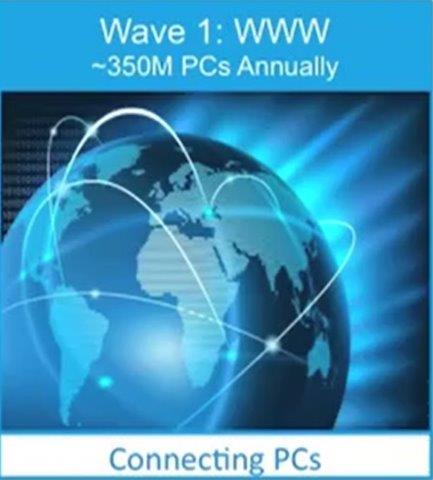
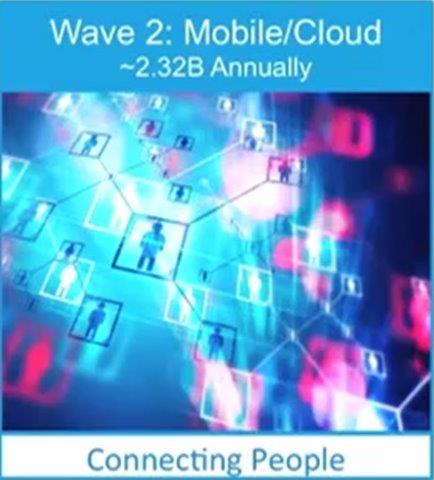
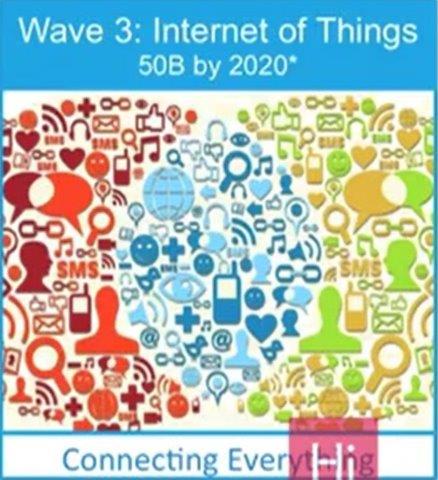
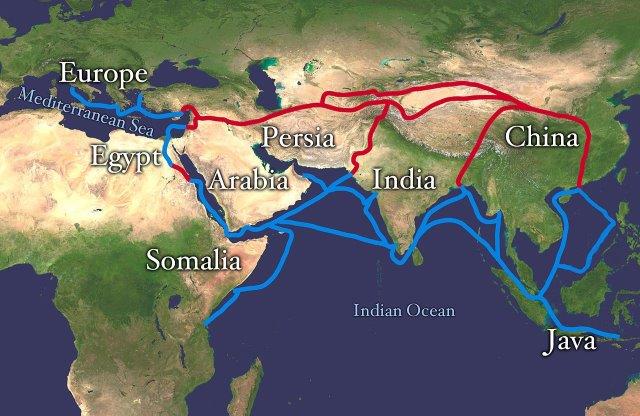
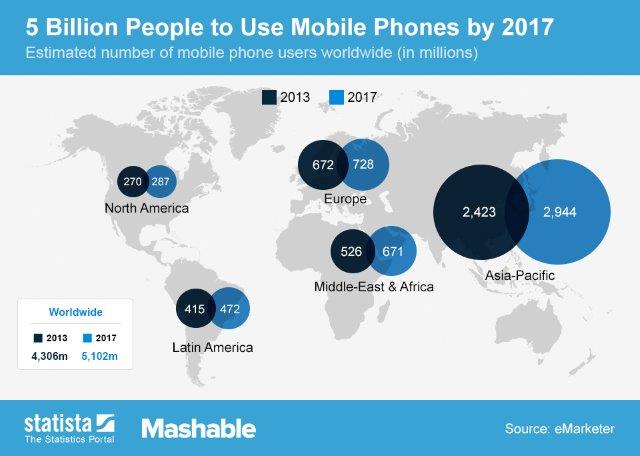
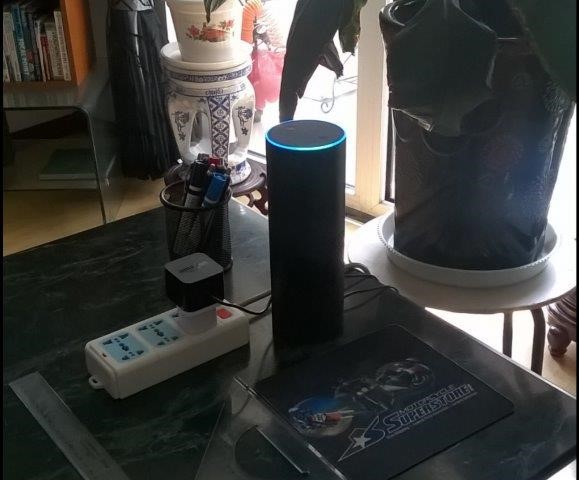
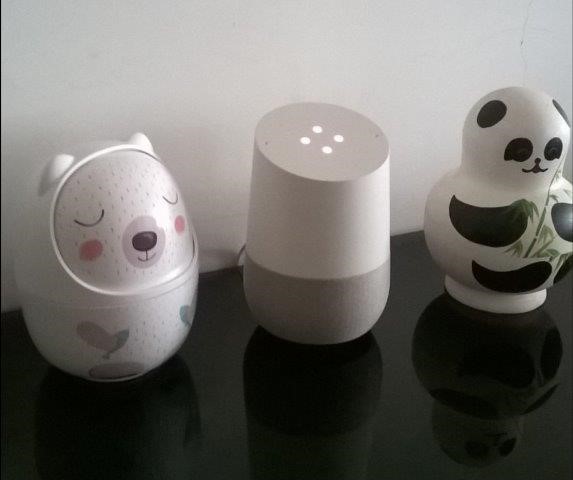
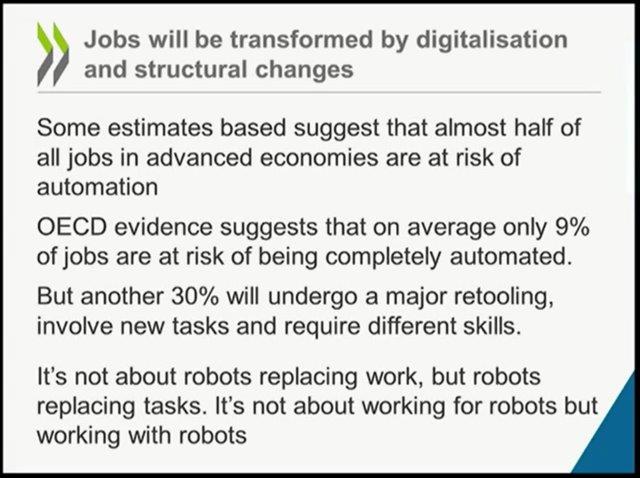
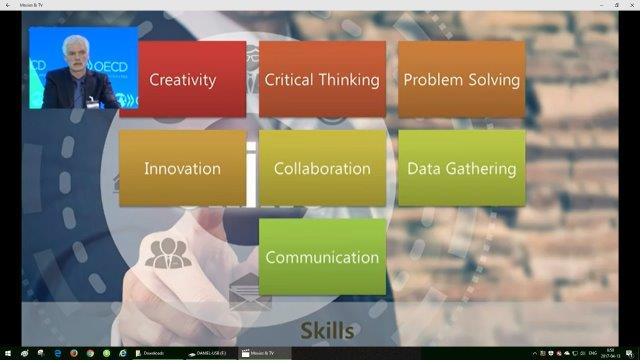
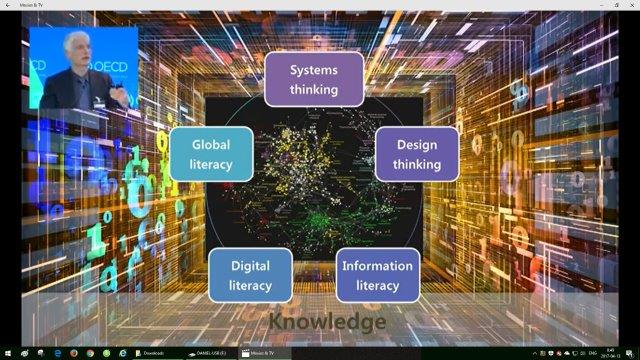
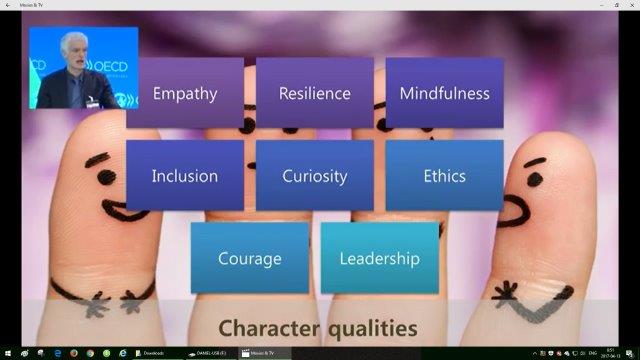
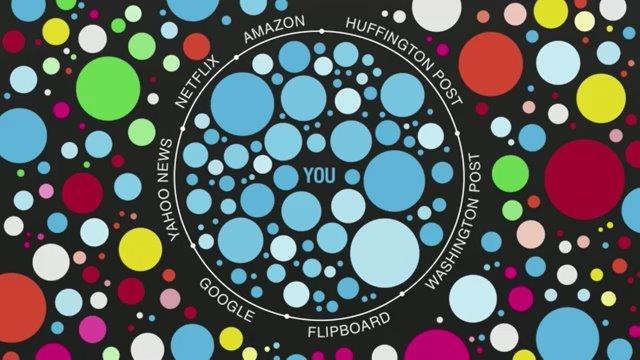
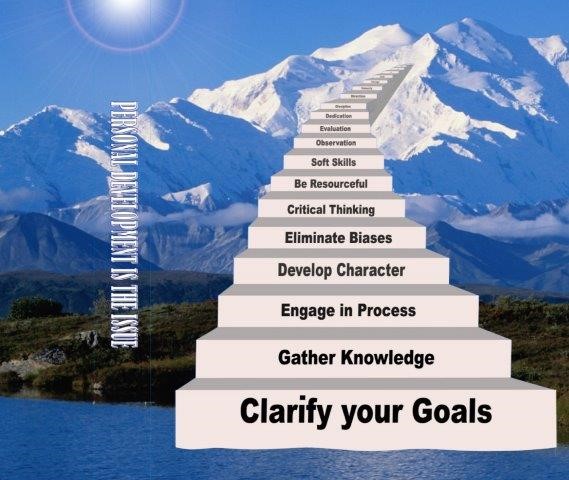
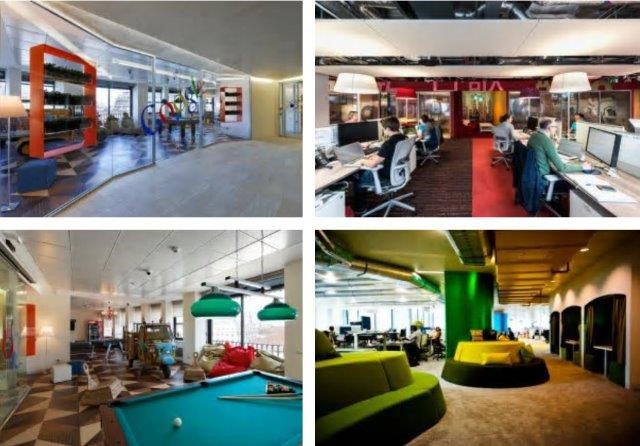
Definitions key to discussions: